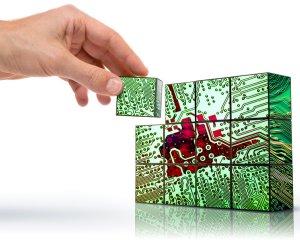[youtube http://www.youtube.com/watch?v=x6AV7WjIGjo&w=560&h=349]
You're fooling yourself if you believe the introduction of a piece of software will change behaviors. "You can go in with assumptions about how someone is going to use your product, but until you actually get them to use it and observe the way they use it, you're never going to be able to develop a product that people will engage with in the way you want them to," said Nick Stein, director of content and media for Rypple, a social performance management platform. One of Rypple's customers is Facebook. They came in early with Facebook and did a beta test to learn about employee behavior. They tested a lot of things, and quickly adapted when they saw things weren't working. For example, Rypple's product required multiple people to be on it for it to gain value. So they offered $25 to people if they invited a friend. Turns out the financial reward was a disincentive. Instead, information as to why one should connect on a social platform was way more valuable. Once Rypple took away the $25 offer the number of connections tripled. "What motivates people is developing real mastery or competency over something or being recognized by a colleague," said Stein. "Once you reach a certain income level, money is no longer a motivator." When one thinks about a social network, they think everything is public and shareable. And in some cases that's great, like when you're thanked for your work and everyone sees that. But with constructive feedback, you don't want that to be public. Rypple watched behaviors at Facebook and had to determine which behaviors were natural and shareable and which ones were not. "You really can't use software to change existing behaviors. You can use software to amplify those behaviors," said Stein. The result was Rypple's recognition tool. Traditionally, people give thanks by sending you an email, or personally congratulating you in the hallway. To mimic that behavior yet extend its value, Rypple created badges that could be customized and used as thanks. When you give someone a "Thank You" badge, it becomes part of their profile that they take with them throughout the company. It's nothing new, Rypple just took something that already existed and made it more efficient and better for the person receiving it, said Stein.

